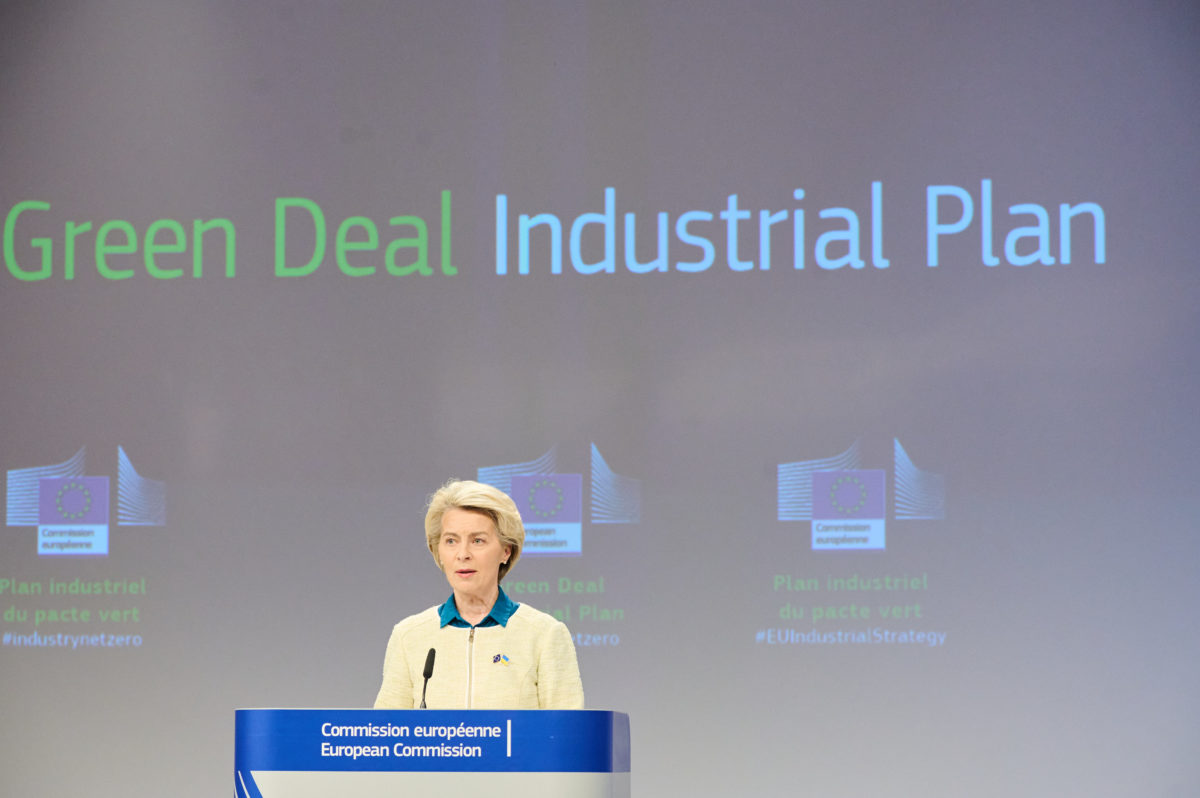From pv magazine Spain
The European Commission has published a new document on the Green Deal Industrial Plan that EC President Ursula von der Leyen announced at Davos in mid-January.
The European counterpart to the US Inflation Reduction Act (IRA) aims to create an environment that is conducive to increasing the European Union's manufacturing capacity of “net-zero” technologies, to improve the competitiveness of European industry.
The plan proposed this week has yet to be discussed among member states and will be presented at the European summit in March. It includes proposals to make state aid more flexible, mobilize European funds, create a sovereign wealth fund, and improve European supply chains. The state aid revisions would apply until 2025, in comparison with the IRA’s 10-year time frame.
The industrial plan will be based on four pillars: a predictable and simplified regulatory environment, better access to finance, upskilling, and open trade for resilient supply chains.
As part of the first pillar, the European Commission will propose an industry law to set targets for industrial capacity and provide an adequate regulatory framework for rapid deployment. It will guarantee faster, simplified permits, while also promoting strategic European projects. The framework will be complemented by the Critical Raw Materials Act and electricity market reforms.
The second pillar of the plan will accelerate investment and financing to produce clean technologies in Europe. The European Commission said public funding could unlock huge amounts of private funding. It wants to relax the rules on state aid that will be applied through the Temporary Crisis and Transition Framework (TCTF) for state aid. This will involve the expansion of provisions for net-zero technologies and storage, while eliminating the need for open tenders for less mature technologies and extending deadlines to complete projects.
Popular content
The fourth pillar of the plan will focus on ” putting trade at the service of the ecological transition,” under the principles of fair competition and open trade, based on commitments with European Union partners and the work of the World Trade Organization. To this end, the European Commission will further develop the European Union's network of free trade agreements and other forms of cooperation with partners to support the green transition. It will also explore the creation of a “critical raw materials club” to bring raw material consumers and resource-rich countries together, with the aim of ensuring global security of supply through a competitive, diversified industrial base.
The industrial plan is short on more details and does not discriminate between “net-zero” technologies in its policy proposals. This is something that SolarPower Europe has criticized.
“Industrial policy focus on critical renewable energy supply chains is a good thing. However, we’re worried by the lack of focus in today’s Communication,” said Dries Acke, policy director at SolarPower Europe. “Not all net-zero technologies are in the same boat – not in terms of strategic importance, or even the impact they’re feeling from the Inflation Reduction Act.”
Ursula von der Leyen said during the presentation of the plan that “Europe is determined to lead the clean technology revolution.” She added that better access to financing will allow key industries of clean technologies to “grow rapidly.”
Brussels has its sights set on the extraordinary Summit of EU Leaders on Feb. 9 and Feb. 10. The meeting is expected to address the community response to subsidies from the United States and from China, where announced investments in clean technologies will exceed $280 billion.
This content is protected by copyright and may not be reused. If you want to cooperate with us and would like to reuse some of our content, please contact: editors@pv-magazine.com.



1 comment
By submitting this form you agree to pv magazine using your data for the purposes of publishing your comment.
Your personal data will only be disclosed or otherwise transmitted to third parties for the purposes of spam filtering or if this is necessary for technical maintenance of the website. Any other transfer to third parties will not take place unless this is justified on the basis of applicable data protection regulations or if pv magazine is legally obliged to do so.
You may revoke this consent at any time with effect for the future, in which case your personal data will be deleted immediately. Otherwise, your data will be deleted if pv magazine has processed your request or the purpose of data storage is fulfilled.
Further information on data privacy can be found in our Data Protection Policy.